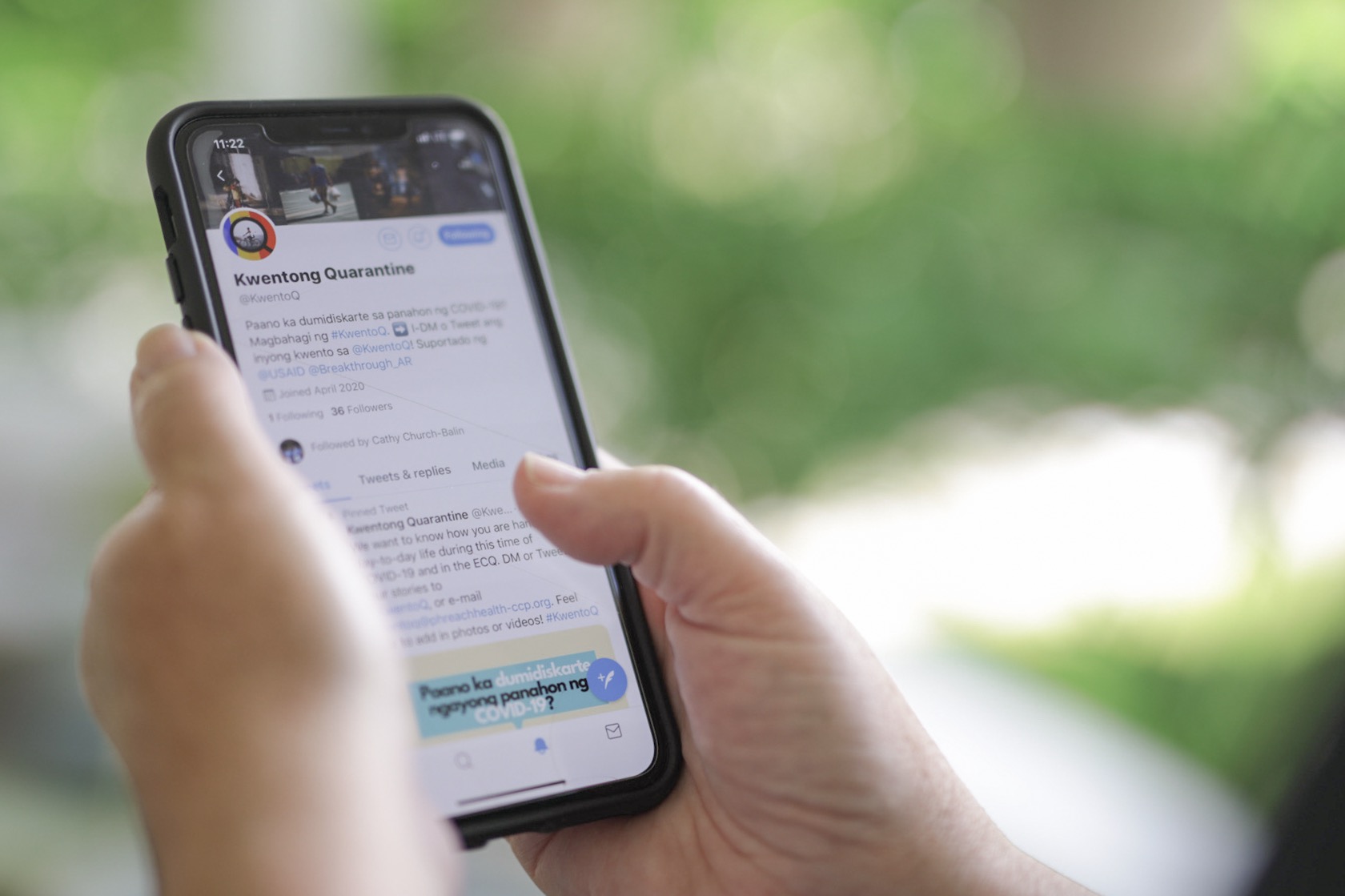At the start of the COVID-19-related shutdowns in the Philippines, Eric tweets that he “felt paralyzing anxiety. One day, I decided to get up & try to change that, and now I’m the healthiest I’ve been! I’m doing daily yoga in the mornings & HIIT in the afternoons. I’m on Day 54 of no smoking! Hoping these new habits stick!”
Gio tweets: “During these trying times, I enjoy studying Philippine geography. My goal is to study one region per day. I enjoy this activity a lot because it brings back memories during elementary” school.
The tweets are from the nascent KwentoQ Twitter account which was started about three weeks ago by staff from the Johns Hopkins Center for Communication Programs based in Manilla. In Filipino, the official Philippine language, KwentoQ can mean both “quarantine story” and “my story.”
The idea behind the account is to build connections by having people from across the Asian nation share bite-sized stories about how they are coping during these unprecedented times caused by the pandemic. COVID-19 has killed more than 315,000 people around the world this year, including 846 in the Philippines.
“We are trying to build that sense of community,” says CCP’s Via Abellanosa, who is helping to lead the project. “In one sense or another, we are able to relate to each other.”
Abellanosa and her colleague Algin Gultia are also working with the Philippine government’s Department of Health on a website devoted to stemming the spread of COVID-19 and on a national public health campaign being developed to do the same. The government through the Department of Health promotes KwentoQ, Abellanosa and Gultia say, by asking people from across the Philippines to share their stories.
CCP’s COVID-19 is being conducted by its Breakthrough ACTION project with support from USAID.
The Twitter account was inspired by COVIDvoices, an account created by the U.S.-based staff of CCP to share stories and life hacks for enduring widespread stay-at-home orders there. Stories shared there include a tale of signing onto her local library’s Wi-Fi network from her car when working at home became impossible, and another about neighbors sharing pictures of their bookshelves in order to trade titles since the libraries remain closed.
Gultia says she loves hearing from other Filipinos about how they are coping and changing their behaviors during the COVID-19 pandemic, behavior changes beyond physical distancing, more frequent handwashing and mask wearing.
“Life is not going to go back to what it was before,” she says. “We’re adjusting to our new normal. We want KwentoQ to be a tool to remind Filipinos to maintain these new behaviors.”





